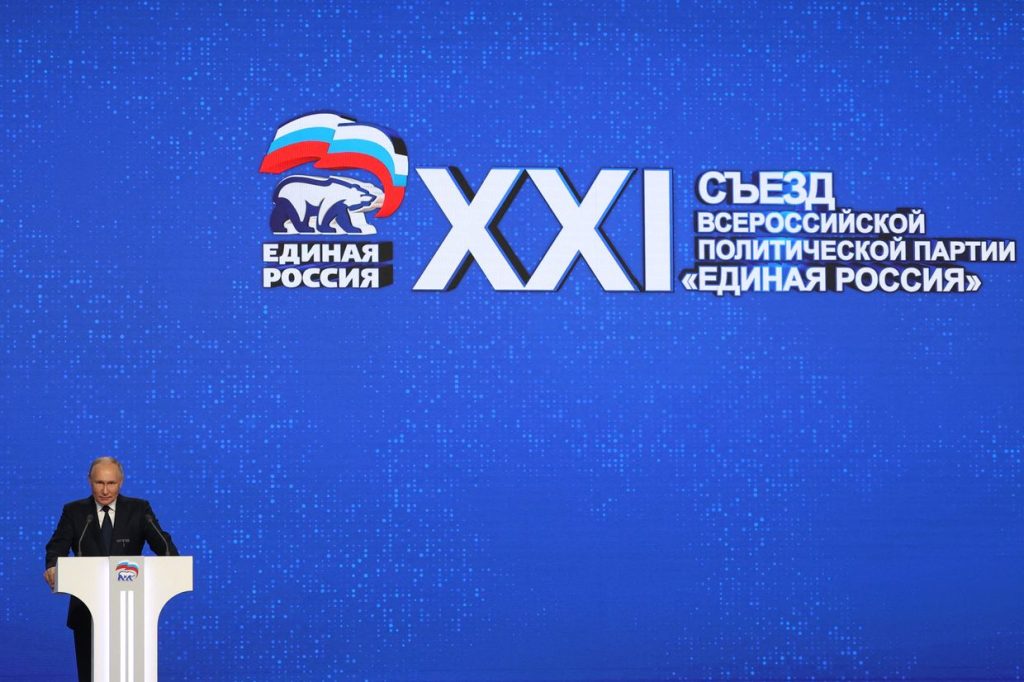Ukrainian military intelligence carried out a significant cyberattack on April 26, targeting the online platforms of Russia’s ruling United Russia party. The party had claimed earlier in the day that its electronic services were under large-scale DDoS attacks, which they believed were linked to the launching of its Victory Day campaign. While United Russia stated that its critical digital infrastructure remained operational, a source in Ukrainian special services revealed that the party’s digital platforms were actually partially inaccessible, and that Ukraine’s military intelligence (HUR) was responsible for the attack. The servers, websites, and domains of United Russia continued to be under attack at 9 p.m. local time, highlighting the use of cyberattacks as a common tool in the Russia-Ukraine conflict.
Cyberattacks have become increasingly prevalent in the ongoing Russia-Ukraine war, with the Security Service of Ukraine (SBU) repelling approximately 10,000 cyberattacks since the outbreak of the full-scale war in 2022. One of the largest cyberattacks targeted Kyivstar, the leading telecommunications provider in Ukraine, in December 2023. This cyberattack resulted in internet and network outages across the country, and Kyivstar incurred losses amounting to Hr 3.6 billion ($92.8 million). The use of cyber warfare in the conflict underscores the evolving nature of modern warfare, where digital attacks can have significant impacts on critical infrastructure and services within a country.
In another instance, Ukrainian hackers, possibly connected to the Security Service of Ukraine (SBU), destroyed a data center used by the Russian military, oil, gas, and telecommunications industries. This action, which occurred on April 8, was reported by sources within the SBU to the Kyiv Independent. The targeted destruction of a data center linked to key sectors in Russia highlights the role of cyber warfare in disrupting the operations of adversaries. The ability of Ukrainian hackers to infiltrate and dismantle critical infrastructure used by the Russian military and industries showcases the strategic importance of cyber capabilities in the ongoing conflict between the two countries.
The continuous use of cyberattacks in the Russia-Ukraine war reflects a broader trend where digital warfare has become a prevalent tactic in modern conflicts. The utilization of cyber capabilities to target critical infrastructure, disrupt communications, and compromise digital platforms underscores the need for countries to strengthen their cybersecurity defenses. As seen in the case of Ukraine, the country has faced numerous cyberattacks, highlighting the importance of bolstering defenses and investing in cybersecurity measures to protect against evolving threats in the digital realm. The intersection of technology and warfare has created a new battlefield where countries are increasingly relying on cyber capabilities to gain strategic advantages and achieve their objectives in conflicts.
The information warfare aspect of the Russia-Ukraine conflict extends beyond traditional military operations, with cyberattacks playing a significant role in shaping the narrative and impacting the strategies of the opposing sides. By targeting the digital infrastructure of political parties, military institutions, and key industries, both Russia and Ukraine are leveraging cyber warfare to gain a competitive edge in the conflict. The use of cyber capabilities to disrupt communications, compromise data, and disable critical systems demonstrates the growing importance of cybersecurity in modern warfare. As countries continue to innovate and adapt to the changing landscape of conflict, cybersecurity will play a crucial role in defending against cyber threats and safeguarding national security interests.
Supporting independent journalism in Ukraine is crucial to providing accurate and timely information about the ongoing conflict, including developments in cyber warfare and digital attacks. By becoming a member or supporting independent media outlets, individuals can contribute to the dissemination of reliable news and analysis that sheds light on the complexities of the Russia-Ukraine war. Independent journalism plays a vital role in holding governments and institutions accountable, uncovering hidden truths, and providing a platform for diverse voices to be heard. In the digital age, where information can be weaponized and manipulated, supporting independent journalism is essential in promoting transparency, democracy, and the pursuit of truth amid the fog of war.


